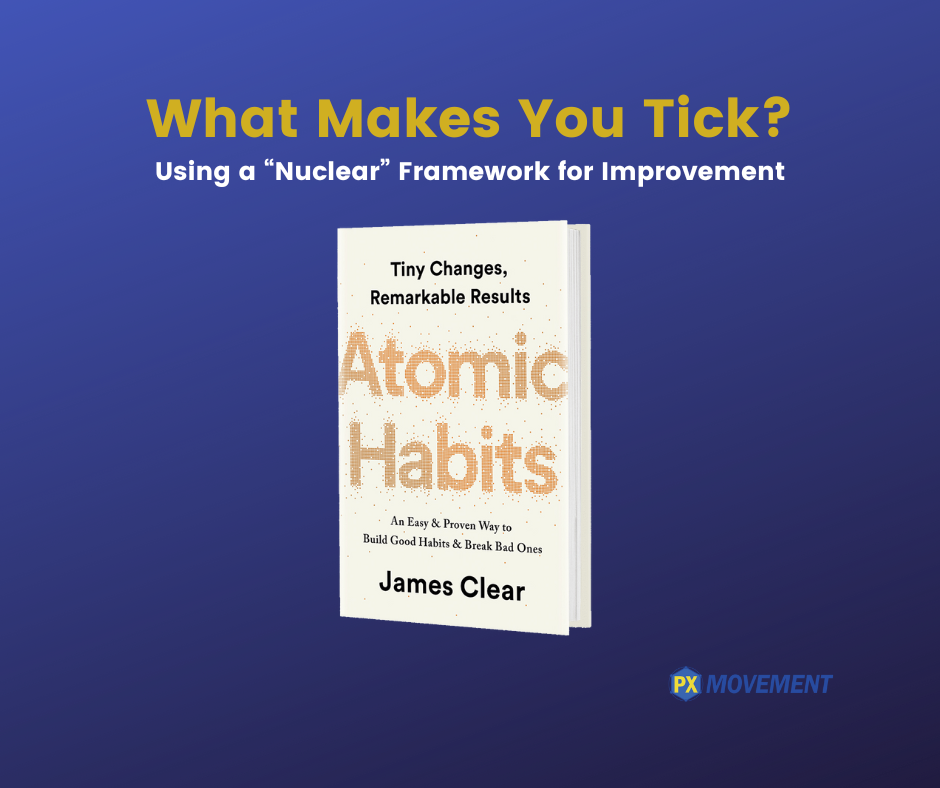What Makes You Tick?
Using a “Nuclear” Framework For Improvement
Do you ever wonder why when it comes to making changes in our lives we tend to fail more than we succeed? It’s a reality for us as individuals as well as organizations of all shapes and sizes.
To counter this, I recently started reading Atomic Habits, a book that resonates with me both personally and professionally. Although it’s directed towards change at the individual level, the 3 key lessons in the book can be applied to businesses and especially medical practices. What I appreciate is how these 3 lessons relate to the content in Beyond Bedside Manner. Here’s a quick summary:
Lesson 1: Small habits make a big difference.
Author James Clear (great last name!) is crystal clear in his admonition to focus on getting 1 percent better every day. The tiny, incremental improvement which may not even be noticeable in the moment compounds in value over time.
Small changes are easier to make than large ones. This principle is behind Insight 37, “Small is the New Big.” You and your team will be motivated by success, which is easier to achieve when you can do something quickly and easily to improve the patient experience. And here’s a pro tip: patients often value the small change more than the large one. A good example is how they are greeted at the front desk may prove more meaningful than the new granite counter front desk itself!
Lesson 2: Forget about setting goals. Focus on your system instead.
I have to admit that I like to set long-term goals and have checklists to keep my workday on track. What Atomic Habits has taught me is that it’s the underlying process that is more important than the goal itself.
When it comes to making changes in the practice, you need to look at how you make decisions in the first place. A key principle in Beyond Bedside Manner is that you want to involve the entire team in the change process. Each team member can be a valuable resource in helping the group “see” the patient’s point of view. This is especially true when doctors and administrators tend to have less interaction with patients than front-line employees. Insight 32, “The Daily Huddle,” is an example of how you can create an ongoing habit in the practice that gives employees the opportunity to actively participate in the process of change.
Lesson 3: Build identity-based habits.
“Your current behaviors are simply a reflection of your current identity.” That’s a powerful quote in that it opens the door to thinking about what you want your future identity to be. Atomic Habits make this easier than it sounds with two steps: decide what you want to become and prove it with small wins.
At the practice level, I challenge each doctor, manager, and employee to answer the question posed in Insight 1 in Beyond Bedside Manner: “What business are you in?” This is fundamental to enhancing the patient experience, as the answer dictates what happens each day inside your practice. If you are simply a service provider, then you are subject to being judged against all others who provide similar services. On the other hand, if you are in the business of transformation, your offering is going to be far more unique and far less comparable.
Both of these books are about improvement. Atomic Habits helps break down the resistance we experience to achieving the goals and dreams we have for ourselves. Beyond Bedside Manner helps create the mindset required to help a practice become its best self and more effectively serve the needs of patients, doctors, and their teams.
Enjoy them both!

